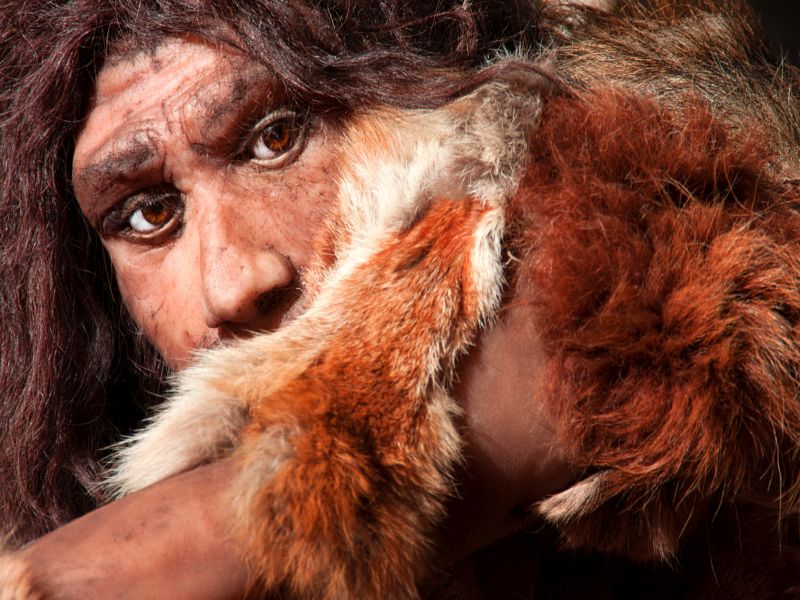

Like Your Skin, Your Hair? Thank Your Neanderthal Ancestors
Scientists say DNA from long-extinct species plays role in humans todayThursday, October 5, 2017

THURSDAY, Oct. 5, 2017 (HealthDay News) -- Neanderthals are long gone, but bits of their genetic code help shape the bodies and minds of people today, researchers report.
These ancient genes still appear to play a role in determining people's skin tone and hair color, plus characteristics as varied as mood, tendency to smoke, and sleep/wake patterns ("circadian rhythms"), the scientists said.
The key to these traits in today's humans may lie in how Neanderthals adapted to sun exposure in their home in Eurasia.
"Skin and hair color, circadian rhythms and mood are all influenced by light exposure," the study authors wrote in the Oct. 5 issue of the American Journal of Human Genetics.
"We speculate that their identification in our analysis suggests that sun exposure may have shaped [Neanderthal DNA], and that gene flow into modern humans continues to contribute to variation in these traits today," according to Janet Kelso, of the Max Planck Institute for Evolutionary Anthropology in Germany, and colleagues.
An estimated 2 percent of the DNA in non-African humans comes from Neanderthals, who interbred with early humans.
The study authors wanted to understand the "influence Neanderthal DNA might be having on ordinary variation in people today," Kelso said in a journal news release.
The investigators analyzed genetic information from about 112,000 participants in the UK Biobank pilot study. The team found evidence that Neanderthal DNA affects the appearance of human skin and hair.
"We can now show that it is skin tone, and the ease with which one tans, as well as hair color that are affected," Kelso said.
Modern humans from Africa met up with Neanderthals around 100,000 years ago in Eurasia, Kelso said.
Sun exposure in that region of the world probably affected how certain physical features in Neanderthals adapted to ultraviolet radiation, she explained.
Kelso's team said in the news release that they plan to continue to explore Neanderthals' influence on modern-day traits as more data become available.
SOURCE: American Journal of Human Genetics, news release, Oct. 5, 2017
HealthDay
Copyright (c) 2017 HealthDay. All rights reserved.
News stories are written and provided by HealthDay and do not reflect federal policy, the views of MedlinePlus, the National Library of Medicine, the National Institutes of Health, or the U.S. Department of Health and Human Services.
- More Health News on
- Genes and Gene Therapy




























.png)











No hay comentarios:
Publicar un comentario